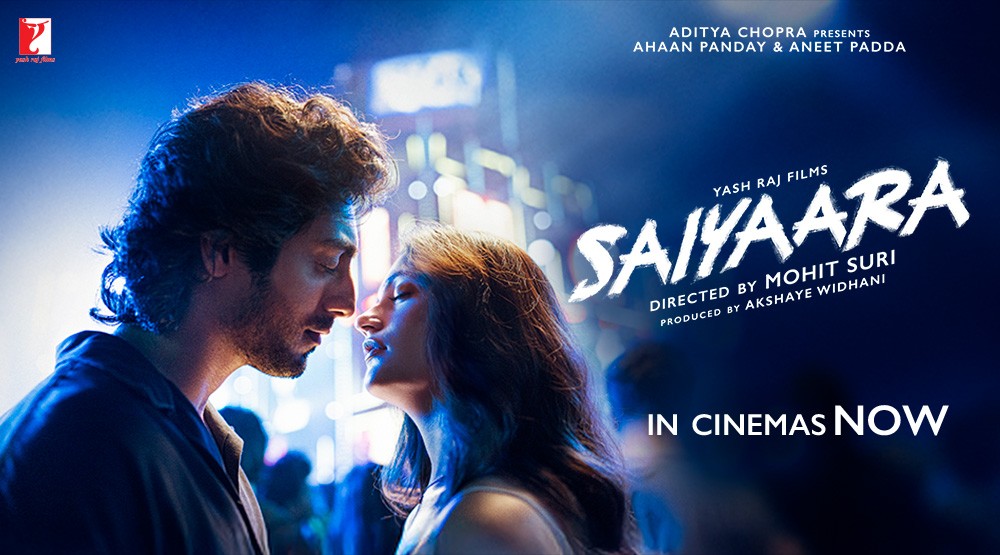Saiyaara: A Heartfelt Love Story
Introduction
The Bollywood film industry has long been celebrated for its romantic dramas, many of which have achieved cultural permanence. Among these, the Aashiqui series remains iconic, with both its 1990 original and its 2013 revival narrating the emotional journey of a struggling singer and his muse. These films have stood the test of time, not only due to their heartfelt storytelling but also their memorable soundtracks. In this context, Saiyaara, directed by Mohit Suri, emerges as a contemporary love story that draws inspiration from this tradition while adding its own narrative identity.
Plot Summary
Saiyaara centers on Krish Kapoor, a talented yet emotionally volatile singer, portrayed by debutant Ahaan Panday @ahaanpandayy. Scarred by childhood trauma, Krish maintains a brash exterior. His life changes upon meeting Vani, played by Aneet Padda, a reserved and recently heartbroken woman who is assigned to write lyrics for his music. Despite their contrasting personalities, the two gradually develop a romantic relationship. However, circumstances intervene, leading to their separation. The second half of the film focuses on their emotional reconciliation, weaving a narrative of love, loss, and healing.
Narrative and Screenplay
The film’s story, adapted by Sankalp Sadanah from the South Korean movie A Momentto Remember, is relatively straightforward, eschewing psychological complexity in favor of emotional immediacy. While the plot lacks narrative layering, it remains effective due to the passionate tone—a hallmark of Mohit Suri’s directorial style. The screenplay includes emotionally resonant moments that allow the characters to shine. Although the dialogue, written by Rohan Shankar, occasionally borders on melodrama, it aligns with the overall simplicity and rhythm of the narrative.
Performances
A romantic film succeeds primarily on the strength of its leads, and Saiyaara benefits from compelling performances by its centralpair. Ahaan Panday makes a confident debut as Krish Kapoor, displaying notable screen presence, vocal command, and emotional depth. His portrayal effectively captures the dualities of vulnerability and aggression, with Suri’s direction extracting a nuanced performance that suggests star potential.
Aneet Padda, who had a brief yet impactful role in Salaam Venky, brings sincerity and subtlety to her role as Vani. She transitions seamlessly between vulnerability and confrontation, evidencing a wide emotional range. The chemistry between the lead pair is palpable, lending credibility to their onscreen relationship and anchoring the film emotionally.
The supporting cast also contributes effectively. Geeta Agarwal and Rajesh Kumar bring authenticity to the roles of Vani’s parents, while Varun Badola, though underutilized, delivers a compelling performance in a limited role as Krish’s father. Alam Khan, of Kota Factory fame, stands out as KV, Krish’s loyal friend, portraying the character with warmth and comedic timing.

Music and Cinematography
Music plays a pivotal role in Saiyaara, as is typical in Mohit Suri’s films. The film features compositions from a diverse group of musicians including Mithoon, Tanishk Bagchi, Faheem Abdullah, Arslan Nizami, Vishal Mishra, Sachet–Parampara and TheRish (Rishabh Kant). The seven tracks—performed by acclaimed artists such as Arijit Singh, Jubin Nautiyal, Shreya Ghoshal, and others—are complemented by evocative lyrics from Irshad Kamil, Mithoon, Raj Shekhar, and Rishabh Kant. These songs not only enhance the emotional stakes of the film but also advance the narrative.
The cinematography, helmed by Vikas Sivaraman, employs visual cues—particularly shifts in color grading and lighting—to mirror the emotional states of the characters. The visual aesthetics support the film’s tone, enhancing the romantic and dramatic moments with sensitivity.
Directorial Vision and Impact
Mohit Suri continues to affirm his expertise in the romantic drama genre. While Saiyaara does not introduce a groundbreaking storyline, Suri’s direction ensures emotional continuity and extracts heartfelt performances from the cast. The film’s 156-minute runtime is sustained by a consistent emotional arc, showcasing Suri’s command over narrative pacing and sentiment.
Just as Sanjay Leela Bhansali is often associated with grand historical dramas, Mohit Suri has carved a niche as a director of emotionally resonant romantic narratives. Saiyaara reinforces this association.
Conclusion
Saiyaara is a quintessential Bollywood love story—emotionally evocative, musically enriched, and thematically straightforward. While some viewers, particularly those outside the intended youthful demographic, may find certain elements overly sentimental or predictable, the strength of the lead performances renders the film worthwhile. Ahaan Panday and Aneet Padda @aneetpadda_ carry the film with conviction and chemistry, making their presence the central reason to engage with the narrative. Despite its familiar structure, Saiyaara offers a moving cinematic experience that reaffirms the enduring appeal of the Bollywood love story.

